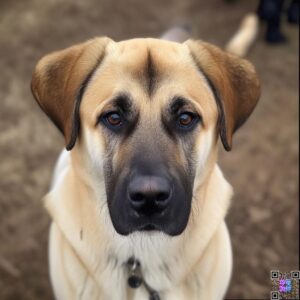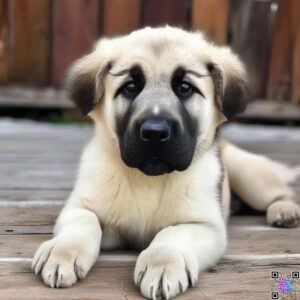Introduction
Anatolian Shepherds are a popular breed known for their loyalty, protective instincts, and majestic appearance. Originating from Turkey, these dogs have been used for centuries as guard dogs and herding animals. With their striking appearance and robust build, it’s no wonder why many pet owners are interested in bringing an Anatolian Shepherd into their family. However, before making a decision, it’s essential to understand the breed’s history, physical characteristics, temperament, and potential health issues.
History and Origin

Ancient Origins
The Anatolian Shepherd, also known as the Kangal Dog, has its roots in ancient Turkey. These dogs were bred to protect sheep and other livestock from predators such as wolves and bears. Over time, they developed strong protective instincts and a robust build to withstand the harsh Turkish climate. Their history dates back to the 14th century, making them one of the oldest dog breeds in the world.
Physical Characteristics
Size and Coat
Anatolian Shepherds are a medium to large-sized breed, typically weighing between 80-150 pounds and standing between 26-30 inches tall at the shoulder. They have a thick double coat that sheds heavily, requiring regular grooming to prevent matting and tangling. Their coat can range from fawn to brindle, with a distinctive white blaze on their forehead.
Temperament and Behavior
Protective Instincts
Anatolian Shepherds are known for their strong protective instincts. They are naturally suspicious of strangers and can be wary of other pets, especially if not socialized properly. This protective nature makes them excellent guard dogs, but it also means they require careful training and socialization to prevent aggression.
Health and Grooming
Common Health Issues
Anatolian Shepherds are generally a healthy breed, but they can be prone to certain health issues such as hip dysplasia, elbow dysplasia, and eye problems. Regular veterinary check-ups and a balanced diet can help prevent these issues. Additionally, they require regular grooming to maintain their thick coat and prevent matting.
Mixing with Other Breeds
Benefits of Mixing
Mixing Anatolian Shepherds with other breeds can offer several benefits. For one, it can help reduce the risk of inherited health issues. Additionally, mixing breeds can create a more balanced temperament and reduce the likelihood of aggression. Popular mixes involving Anatolian Shepherds include the Anatolian Shepherd German Shepherd mix and the Anatolian Shepherd Labrador Retriever mix.
Cost of Owning an Anatolian Shepherd
Owning an Anatolian Shepherd involves more than just the initial purchase price; it’s essential to consider ongoing costs associated with care. Monthly expenses can include high-quality dog food tailored to large breeds, regular veterinary check-ups, vaccinations, grooming supplies (especially during shedding seasons), and training classes if needed.Additionally, potential health issues such as hip dysplasia or hypothyroidism may arise as your dog ages. Pet insurance can help mitigate some of these costs by covering unexpected veterinary expenses. Overall, budgeting appropriately will ensure you provide your new companion with everything they need throughout their life.
Health Considerations for Anatolian Shepherds
Like all breeds, Anatolian Shepherds can be prone to specific health issues. Regular veterinary check-ups are crucial in monitoring their health throughout their lives. Common concerns include hip dysplasia—a genetic condition affecting joint health—and certain skin conditions due to their thick coats.Maintaining a healthy diet rich in nutrients will support your dog’s overall well-being. Regular exercise is also essential; while they don’t require excessive activity like some breeds do, daily walks or playtime will keep them happy and healthy.
Pros and Cons of Owning an Anatolian Shepherd
Every dog comes with its unique set of advantages and challenges; understanding these will help you decide if an Anatolian Shepherd is right for you.
- Pros:
- Loyal guardians who protect family members.
- Minimal grooming needs due to short coats.
- Generally healthy with proper care.
- Cons:
- Requires experienced handlers due to independence.
- Needs ample space—apartment living is not suitable.
- Can be vocal; barking may not suit all households.
By weighing these factors carefully, you’ll be better equipped to determine if this breed aligns with your lifestyle.

FAQs
1- Are Anatolian Shepherds good with children?
Anatolian Shepherds can be good with children if socialized properly and trained to interact gently.
2- Do Anatolian Shepherds require a lot of exercise?
Anatolian Shepherds need regular exercise to maintain their physical health and mental well-being.
3- Are Anatolian Shepherds good guard dogs?
Anatolian Shepherds are naturally protective and can make excellent guard dogs if trained and socialized properly.
4- Do Anatolian Shepherds shed a lot?
Anatolian Shepherds have a thick double coat that sheds heavily, requiring regular grooming to prevent matting and tangling.
5- Are Anatolian Shepherds intelligent?
Anatolian Shepherds are highly intelligent and respond well to training.
6- Do Anatolian Shepherds get along with other pets?
Anatolian Shepherds can get along with other pets if socialized properly and trained to interact gently.
Conclusion
In conclusion, Anatolian Shepherds are a unique and fascinating breed that can make excellent pets for the right owner. With their rich history, striking appearance, and robust build, they are a popular choice among dog enthusiasts. However, it’s essential to understand their temperament, health issues, and grooming needs before bringing one home. By doing so, you can ensure a happy and healthy relationship with your Anatolian Shepherd.
